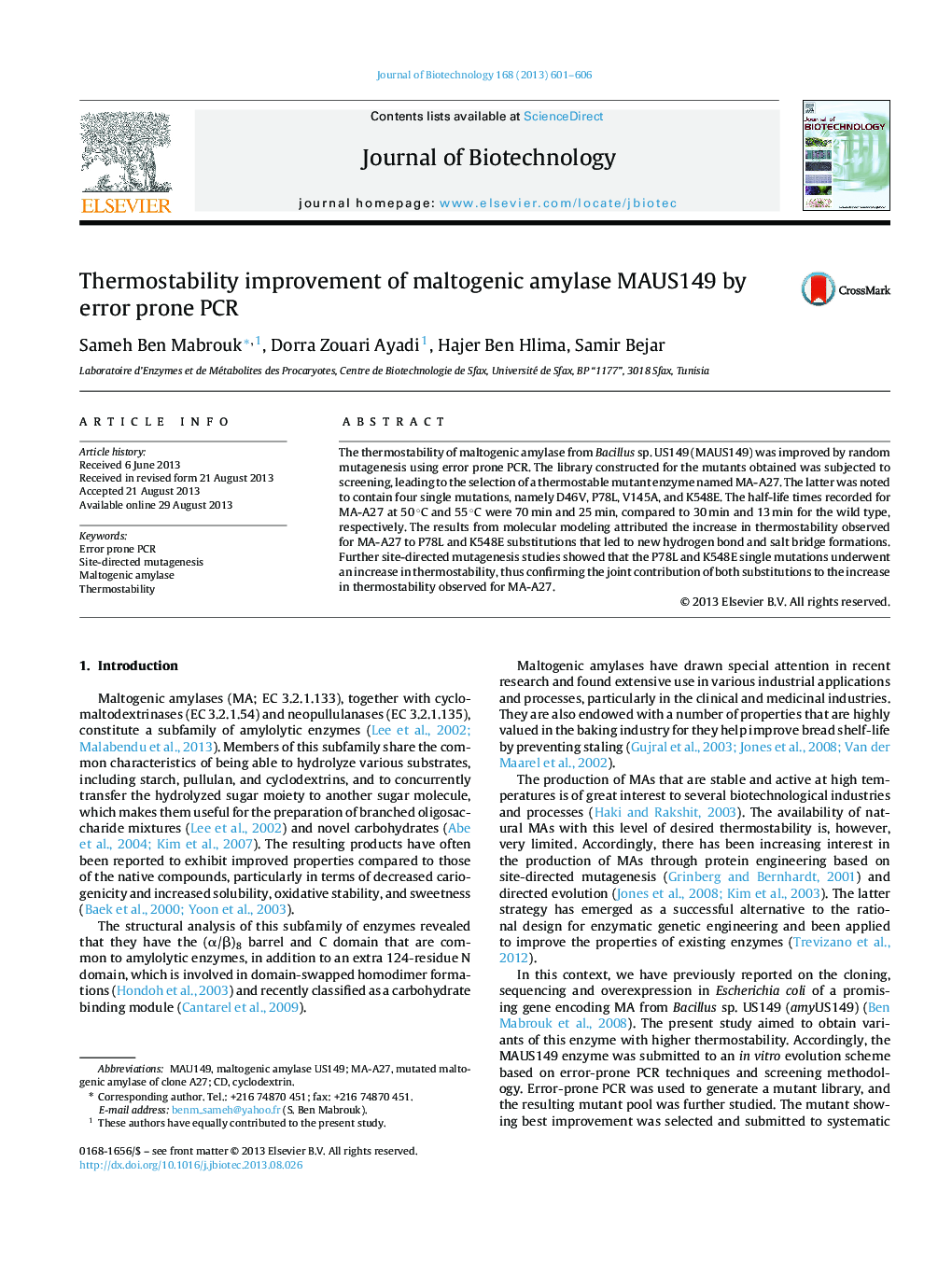| Article ID | Journal | Published Year | Pages | File Type |
|---|---|---|---|---|
| 6491727 | Journal of Biotechnology | 2013 | 6 Pages |
Abstract
The thermostability of maltogenic amylase from Bacillus sp. US149 (MAUS149) was improved by random mutagenesis using error prone PCR. The library constructed for the mutants obtained was subjected to screening, leading to the selection of a thermostable mutant enzyme named MA-A27. The latter was noted to contain four single mutations, namely D46V, P78L, V145A, and K548E. The half-life times recorded for MA-A27 at 50 °C and 55 °C were 70 min and 25 min, compared to 30 min and 13 min for the wild type, respectively. The results from molecular modeling attributed the increase in thermostability observed for MA-A27 to P78L and K548E substitutions that led to new hydrogen bond and salt bridge formations. Further site-directed mutagenesis studies showed that the P78L and K548E single mutations underwent an increase in thermostability, thus confirming the joint contribution of both substitutions to the increase in thermostability observed for MA-A27.
Related Topics
Physical Sciences and Engineering
Chemical Engineering
Bioengineering
Authors
Sameh Ben Mabrouk, Dorra Zouari Ayadi, Hajer Ben Hlima, Samir Bejar,
